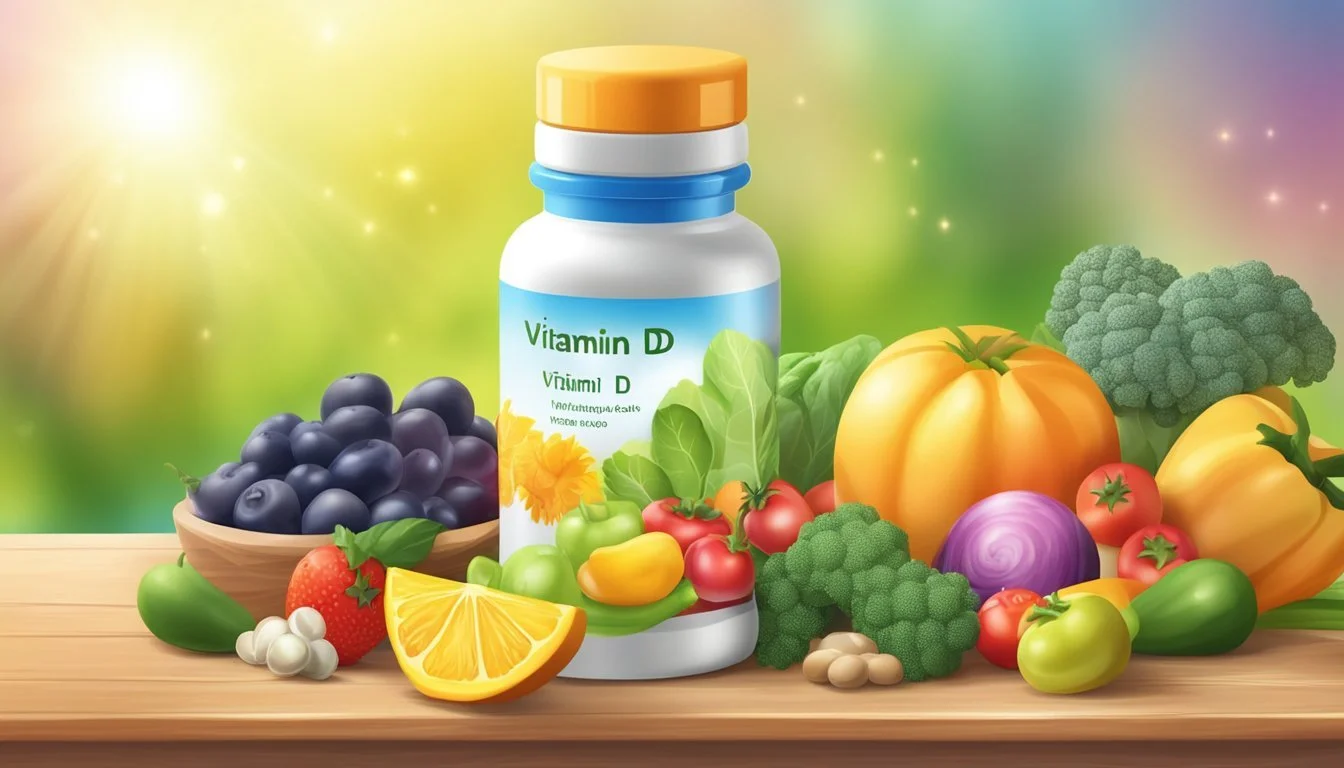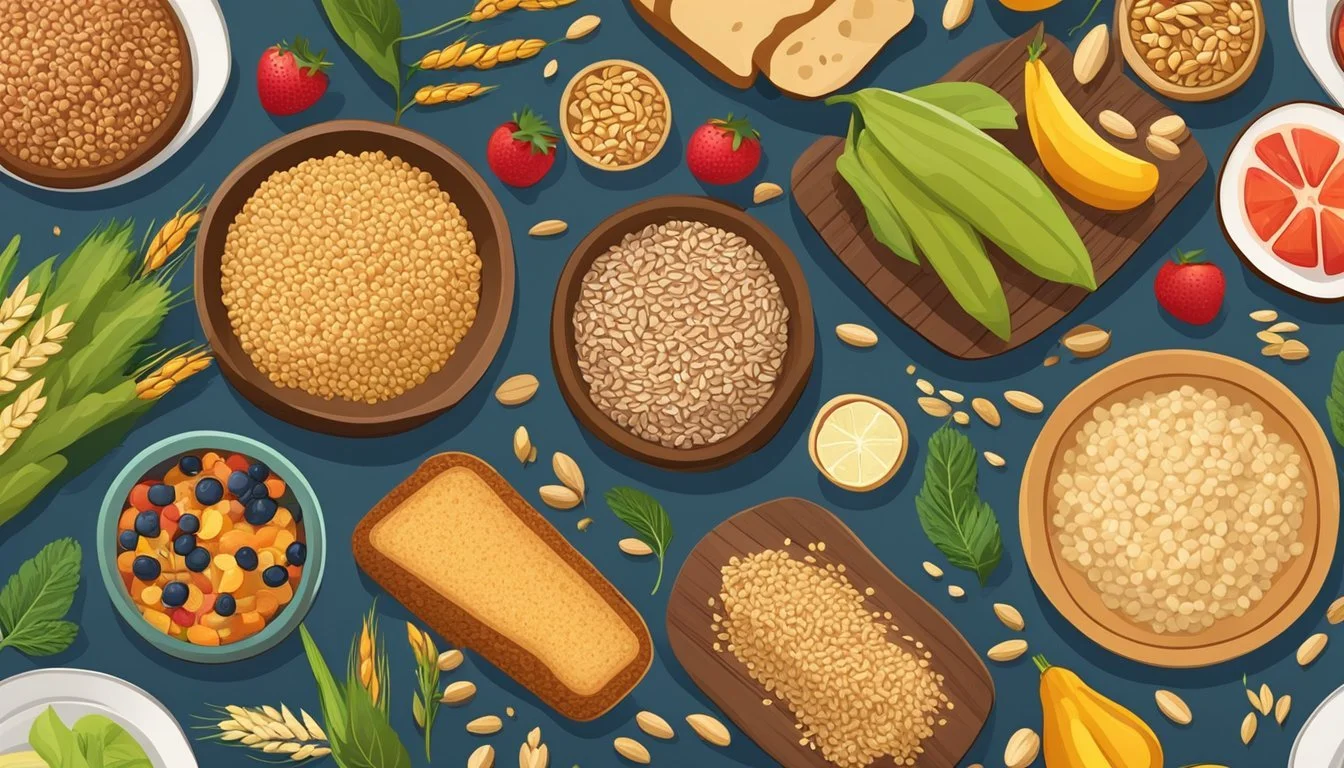9 Nutrition Tips to Boost Mood and Fight Depression Naturally
Evidence-Based Dietary Strategies
Nutrition plays a crucial role in mental health and overall well-being. The foods we consume can significantly impact our mood, energy levels, and ability to cope with stress. While diet alone cannot cure depression, certain nutritional strategies may help alleviate symptoms and promote a more positive outlook.
Incorporating specific foods and nutrients into one's diet can potentially boost mood and support mental health naturally. From omega-3 fatty acids found in fish to the complex carbohydrates in whole grains, various dietary components have been linked to improved emotional well-being. By making informed choices about what we eat, we may be able to complement other treatment approaches and enhance our mental resilience.
1) Exercise Regularly
Regular physical activity is a powerful tool for combating depression and improving mood. Exercise stimulates the production of endorphins, the body's natural mood elevators. These chemicals help reduce stress and promote feelings of well-being.
Engaging in exercise also increases neurotransmitters like serotonin and norepinephrine in the brain. These play a crucial role in regulating mood and emotions. Even moderate amounts of activity can have significant benefits for mental health.
Aerobic exercises such as walking, jogging, swimming, or cycling are particularly effective. Aim for at least 30 minutes of moderate-intensity exercise most days of the week. This can be broken up into shorter 10-15 minute sessions throughout the day if needed.
Strength training and flexibility exercises like yoga can also contribute to improved mood. These activities help reduce muscle tension and promote relaxation. They may also boost self-esteem and body image, which can positively impact overall mental well-being.
Consistency is key when using exercise to fight depression. Making physical activity a regular part of one's routine can lead to long-term improvements in mood and mental health.
2) Eat Omega-3 Rich Foods
Omega-3 fatty acids play a crucial role in brain health and mood regulation. Research suggests that a diet rich in omega-3s may help alleviate symptoms of depression and improve overall mental well-being.
The two most important omega-3s for mental health are eicosapentaenoic acid (EPA) and docosahexaenoic acid (DHA). These essential fatty acids are primarily found in fish oil and certain marine algae.
Fatty fish like salmon, mackerel, sardines, and anchovies are excellent sources of EPA and DHA. For those who don't consume fish, plant-based options include flaxseeds, chia seeds, and walnuts, which contain alpha-linolenic acid (ALA) that the body can convert to EPA and DHA.
Including omega-3 rich foods in the diet may help stabilize mood and reduce the risk of depression. Some studies have shown that populations with high fish consumption tend to have lower rates of depression.
For individuals who struggle to get enough omega-3s from their diet, high-quality fish oil supplements can be a viable alternative. However, it's always best to consult with a healthcare professional before starting any new supplement regimen.
3) Try Mindful Meditation
Mindful meditation can be a powerful tool for managing depression and improving mood. This practice involves focusing on the present moment and observing thoughts without judgment.
Regular meditation has been shown to reduce stress, anxiety, and depressive symptoms. It can help individuals develop a more balanced perspective on their emotions and experiences.
To begin, find a quiet space and sit comfortably. Focus on your breath, noticing the sensation of inhaling and exhaling. When thoughts arise, acknowledge them and gently return your attention to your breath.
Start with short sessions of 5-10 minutes and gradually increase the duration as you become more comfortable. Consistency is key, so aim to practice daily.
Many find guided meditations helpful, especially when starting out. Apps and online resources offer a variety of options to suit different preferences and skill levels.
Incorporating mindful meditation into a daily routine can lead to improved emotional regulation and a greater sense of well-being. It complements other natural approaches to managing depression and enhancing overall mental health.
4) Consume Probiotics
Probiotics are beneficial bacteria that can positively impact both gut and mental health. Research suggests they may help boost mood and cognitive function while reducing stress and anxiety.
Studies have shown promising results for probiotics in improving mental well-being. For example, some Alzheimer's patients who consumed probiotic-rich milk for 12 weeks demonstrated better cognitive performance.
Incorporating probiotics into one's diet is relatively simple. Fermented foods like sauerkraut, yogurt, and kefir are excellent sources. Probiotic supplements are also widely available.
Certain probiotic strains, such as Lactobacillus plantarum and Bifidobacterium bifidum, have been linked to potential mental health benefits. These can be found in various fermented foods and supplements.
For those interested in exploring probiotic options, consulting with a healthcare provider is advisable. They can offer guidance on appropriate strains and dosages based on individual needs and health conditions.
5) Take Vitamin D Supplements
Vitamin D plays a crucial role in mood regulation and mental health. Many people are deficient in this essential nutrient, especially those living in areas with limited sunlight exposure.
Supplementing with vitamin D may help alleviate symptoms of depression. Research has shown promising results in using vitamin D supplements to improve mood and reduce depressive symptoms.
A study published in Nutrition examined nine trials involving over 4,900 individuals diagnosed with depression. The trials used varying levels of vitamin D supplements and intervention periods, suggesting potential benefits for mood improvement.
Before starting any supplementation regimen, it's important to consult with a healthcare provider. They can assess your vitamin D levels and recommend an appropriate dosage based on your individual needs.
While sunlight is a natural source of vitamin D, supplements offer a convenient and controlled way to ensure adequate intake. Common forms include vitamin D3 (cholecalciferol) and D2 (ergocalciferol), with D3 being more effective at raising blood levels.
6) Include B Vitamins in Diet
B vitamins play a crucial role in brain health and mood regulation. Vitamin B12 and folate are particularly important for managing depression symptoms.
Studies have found that increased levels of folate and vitamin B12 are linked to decreased depression rates. Including these vitamins in your diet may help boost your mood naturally.
Good sources of vitamin B12 include eggs, fish, poultry, and dairy products. For folate, leafy green vegetables, legumes, and fortified grains are excellent options.
Other B vitamins like B6 are also associated with improved brain function. Foods rich in B6 include bananas, potatoes, and chicken.
If dietary sources are insufficient, supplements may be considered under medical supervision. However, a balanced diet is generally the best approach to obtaining necessary nutrients.
Incorporating B vitamin-rich foods into daily meals can be a simple yet effective strategy for supporting mental health. It's important to maintain a varied diet to ensure adequate intake of these essential nutrients.
7) Eat Whole Grains
Whole grains are an essential component of a mood-boosting diet. They provide a steady release of energy, helping to stabilize blood sugar levels and promote overall mental well-being.
Incorporating whole grains like brown rice, quinoa, oats, and whole wheat bread into meals can increase serotonin production. Serotonin is a neurotransmitter that plays a crucial role in regulating mood and emotions.
Whole grains are rich in B vitamins, particularly B6, which is involved in the synthesis of neurotransmitters. These nutrients support brain function and may help alleviate symptoms of depression.
The fiber content in whole grains contributes to gut health, which is increasingly linked to mental health. A healthy gut microbiome has been associated with improved mood and reduced risk of depression.
Consuming whole grains as part of a balanced diet can help maintain stable energy levels throughout the day. This stability can prevent mood swings and irritability often associated with blood sugar fluctuations.
Whole grain foods also contain complex carbohydrates, which can increase the availability of tryptophan in the brain. Tryptophan is a precursor to serotonin, potentially enhancing mood regulation.
8) Limit Sugar Intake
Excessive sugar consumption has been linked to increased risk of depression. A study found that high sugar intake could raise depression risk by 28%.
Sugar causes rapid spikes and crashes in blood glucose levels. These fluctuations can negatively impact mood and energy.
Reducing added sugars in the diet may help stabilize mood and support overall mental health. Focus on whole, unprocessed foods instead of sugary treats and beverages.
Be mindful of hidden sugars in packaged foods. Check ingredient labels for terms like sucrose, high-fructose corn syrup, and dextrose.
Consider healthier alternatives to satisfy sweet cravings. Fresh fruits, a small piece of dark chocolate, or herbal tea can provide sweetness without excess sugar.
Gradually decrease sugar intake over time to make changes more sustainable. Even small reductions may have positive effects on mood and wellbeing.
9) Stay Hydrated
Proper hydration plays a crucial role in maintaining mental well-being and fighting depression. Dehydration can negatively impact mood, energy levels, and cognitive function.
Water is essential for transporting nutrients and neurotransmitters in the brain. It helps regulate body temperature and supports overall bodily functions.
Aim to drink at least 8 glasses of water per day. Individual needs may vary based on factors like activity level, climate, and body size.
Herbal teas can be a soothing alternative to plain water. They offer hydration benefits while providing a comforting ritual that may help reduce stress.
Eating water-rich foods like cucumbers, watermelon, and lettuce can contribute to overall hydration. These foods also provide essential vitamins and minerals.
Limit consumption of dehydrating beverages such as alcohol and caffeine. If consumed, balance them with additional water intake.
Pay attention to thirst cues and drink water throughout the day. Keeping a reusable water bottle handy can serve as a helpful reminder to stay hydrated.
The Connection Between Nutrition and Mood
Nutrition plays a crucial role in influencing mood and mental health. The foods we consume provide essential nutrients that directly impact brain function and neurotransmitter production. A balanced diet can help stabilize emotions and combat depressive symptoms.
How Nutrients Influence Brain Chemistry
Certain nutrients are key players in regulating mood. Omega-3 fatty acids, found in fish and flaxseeds, support brain cell structure and function. B vitamins, particularly B12 and folate, are essential for producing mood-regulating neurotransmitters like serotonin and dopamine.
Tryptophan, an amino acid present in turkey, eggs, and cheese, is a precursor to serotonin. Zinc and magnesium, found in nuts and whole grains, help regulate neurotransmitter activity. Vitamin D, obtained through sunlight exposure and fortified foods, is linked to mood regulation and may help alleviate depressive symptoms.
Role of Gut Health in Mental Wellbeing
The gut-brain connection is a vital aspect of mood regulation. A healthy gut microbiome produces neurotransmitters that affect mood and cognitive function. Probiotics and prebiotics support beneficial gut bacteria, potentially improving mental health.
Fermented foods like yogurt contain Lactobacillus, a bacterium that may trigger the production of feel-good chemicals. Fiber-rich foods promote gut health and can stabilize blood sugar levels, reducing mood swings. A diet high in processed foods and sugar may negatively impact gut health and increase the risk of depression.
Key Nutrients for Mental Health
Certain nutrients play crucial roles in brain function and mood regulation. These essential compounds support neurotransmitter production, reduce inflammation, and protect brain cells from damage.
Omega-3 Fatty Acids
Omega-3 fatty acids are essential for brain health and mood regulation. They form key structural components of brain cell membranes and help facilitate communication between neurons.
EPA and DHA, two important omega-3s, may help reduce inflammation in the brain linked to depression. Studies suggest omega-3 supplementation can improve symptoms in some people with depression.
Good dietary sources of omega-3s include:
Fatty fish like salmon, sardines, and mackerel
Walnuts
Flaxseeds and chia seeds
Algae and seaweed
A diet rich in omega-3s may help support overall brain function and emotional well-being.
B Vitamins
B vitamins are vital for proper brain function and the production of mood-regulating neurotransmitters. Several B vitamins play key roles in mental health:
Vitamin B6 aids in serotonin production
Vitamin B9 (folate) is crucial for neurotransmitter synthesis
Vitamin B12 helps maintain the nervous system
Low levels of B vitamins, especially B12 and folate, have been linked to increased risk of depression. Foods high in B vitamins include:
Leafy greens
Legumes
Eggs
Fortified cereals
Adequate B vitamin intake through diet or supplements may help support mood and cognitive function.
Antioxidants
Antioxidants protect brain cells from oxidative stress and inflammation, which may contribute to depression and other mental health issues. Key antioxidants for brain health include:
Vitamin C
Vitamin E
Beta-carotene
Flavonoids
These compounds are found in colorful fruits and vegetables, particularly:
Berries
Citrus fruits
Leafy greens
Nuts and seeds
A diet rich in antioxidants may help reduce inflammation, support brain health, and potentially lower the risk of depression. Eating a variety of colorful plant foods can ensure a good intake of protective antioxidants.








